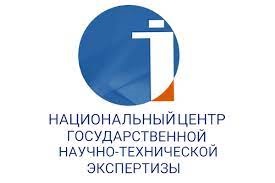THE «BEREKE» CONCEPT IN THE KAZAKH LINGUISTIC PICTURE OF THE WORLD
https://doi.org/10.55491/2411-6076-2024-4-99-115
Abstract
Recent linguistic research is aimed at studying the role and place of linguistic units in the human conceptual sphere, and much attention is paid to the linguistic and cultural aspect of language. The comprehensive study of a certain linguistic culture expands the horizons of understanding, contributing to a deeper understanding of the worldview of the people. And the exchange of information and values in intercultural communication promotes mutual understanding and broadens the horizons of each culture. The ethnospecific concept «Bereke» was chosen as the object of research, since it is culturally significant for native speakers, native and developing, which reveals the nature of the linguistic and cultural code of the language. The concept of «Bereke» is considered as a linguistic and cultural code that combines national cultural and value aspects. The concept of «Bereke» in Kazakh culture is multi-layered and multi-valued. His research allows for a deeper understanding of the cultural, social and historical features of Kazakh culture. This concept embodies important aspects of Kazakh life such as unity, well-being, connection with nature and spiritual wealth. The research work was carried out on the material of the National Corpus of the Kazakh language, and data from lexicographic sources were also used.
About the Authors
А. OnalbayevaKazakhstan
Aigul Onalbayeva, Corresponding author, Doctor of Philological Sciences, Docent
Almaty
Zh. Kiynova
Kazakhstan
Zhanar Kiynova, Doctor of Philological Sciences, Professor
Almaty
References
1. Abdrahmanova, M.B. (2009) Qazaq tіlіndegі konceptіler zhujesі // QazUU habarshysy. «Filologija» serijasy. №4. B. 3-6. [Abdrakhmanova, M.B. (2009) The system of concepts in the Kazakh language // KazNU Bulletin. "Philology" series, №4. P. 3-6] (in Kazakh)
2. Ahmetzhanova, Z.K. (2012) Ocherki po nacional'noj konceptologii. Almaty: Eltanym. 148 s. [Akhmetzhanova, Z.K. (2012) Essays on national conceptology. Almaty: Eltanym. 148 p.] (in Russian)
3. Bijazdyqova, A.A. (2012) Qazaq dunietanymy alemіndegі «baqyt» konceptіsі // «Pojetika zhane olengtanu maselelerі VI» atty qazaqtyng kornektі zhazushysy, dramaturg, galym Z.Shashkinnіng 100-zhyldyq merejtojyna arnalgan halyqaralyq konferencija materialdary, 24-25 mamyr. B. 334-336 [Biyazdykova, A.A. (2012) The concept of "happiness" in the Kazakh worldview // "Poetics and issues of versification VI" materials of the international conference dedicated to the 100th anniversary of the prominent Kazakh writer, playwright, scientist Z.Shashkin. May 24-25. P. 334-336] (in Kazakh)
4. Chernjavskaja, V.E. (2017) Metodologicheskie vozmozhnosti diskursivnogo analiza v korpusnoj lingvistike // Vestnik Tomskogo gosudarstvennogo universiteta. Filologija. №49. S. 135-148. DOI: 10.17223/19986645/50/9. [Chernyavskaya,V.E. (2017) Methodological possibilities of discursive analysis in corpus linguistics // Bulletin of Tomsk State University. Philology. No.49. P. 135-148. DOI: 10.17223/19986645/50/9] (in Russian)
5. Isabekova, U.K.(2017) Osobennosti istoricheskogo razvitija koncepta qut / U. K. Isabekova // Tekst. Kniga. Knigoizdanie. – S. 5-16. URL: http://vital.lib.tsu.ru/vital/access/manager/Repository/vtls:000583001 [Isabekova, U.K. (2017) Features of the historical development of the concept qut / U.K. Isabekova // Text. Book. Publishing. P. 5-16. URL: http://vital.lib.tsu.ru/vital/access/manager/Repository/vtls:000583001] (in Russian)
6. Karasik, V.I., Prohvacheva O.G., Zubkova Ja.V., Grabarova Je.V. (2005) Inaja mental'nost'. Moskva: Gnozis. 352 s. [Karasik, V.I., Prohvacheva O.G., Zubkova Ya.V., Grabarova E.V. (2005) Another mentality. Moscow: Gnosis. 352 p.] (in Russian)
7. Kengesbaev, І.K. (1977) Qazaq tіlіnіng frazeologijalyq sozdіgі. Almaty. 711 b. [Kenesbayev, І.K. (1977) Phraseological dictionary of the Kazakh language. Almaty. 711 p.] (in Kazakh)
8. Kononenko, B.I. (2003) Bol'shoj tolkovyj slovar' po kul'turologii. Kul'turnyj kod. Moskva: Veche. [Kononenko, B.I. (2003) Large explanatory dictionary of cultural studies. Cultural code. Moscow: Veche] (in Russian)
9. Koshanova, Zh. (2009) Qazaq tіlіndegі «bajlyq-kedejlіk» konceptіsі: tanymdyq sipaty men qyzmetі. Fil.gyl.kand. gylymi darezhesіn alu ushіn dajyndalgan dissertacijanyng avtoreferaty. Almaty. 27 b. [Koshanova, Zh. (2009) "The concept of "wealth-poverty" in the Kazakh language: cognitive characteristics and functions. Abstract of the dissertation prepared for the degree of Candidate of Philological Sciences. Almaty. 27 p.] (in Kazakh)
10. Krasnyh, V.V. (2002) Jetnopsiholingvistika i lingvokul'turologija. Moskva: Gnozis. 283 s. [Krasnykh, V.V. (2002) Ethnopsycholinguistics and linguoculturology. Moscow: Gnosis. 283 p.] (in Russian)
11. Larina, A.V., Matveeva M.S. (2019) Znachenie kul'turnyh kodov i stereotipov v kontekste semiotiki medijnoj turistskoj reklamy // MNKO. №4 (77) [Larina, A.V., Matveyeva M.S. (2019) The significance of cultural codes and stereotypes in the context of Semiotics of media tourist advertising // MNKO. №4 (77)] (in Russian)
12. Mankeeva, Zh.A. (2008) Qazaq tіlіndegі jetnomadeni ataulardyng tanymdyq negіzderі. Almaty: Zhіbek zholy. 356 b. [Mankeyeva, Zh.A. (2008) Cognitive foundations of ethnocultural names in the Kazakh language. Almaty: Zhibek zholy. 356 p.] (in Kazakh)
13. Mankeeva, Zh. A. (2022) Jetnokul'turnoe soderzhanie i sinergija slova // Tiltanym. 86(2). S. 48-58. https://doi.org/10.55491/2411-6076-2022-2-46-56 [Mankeyeva, Zh. A. (2022) Ethnocultural content and synergy of the word // Tiltanym. 86(2). P. 48-58. https://doi.org/10.55491/2411-6076-2022-2-46-56] (in Russian)
14. Maslova,V.A. (2001) Lingvokul'turologija: ucheb. posobie. Moskva: Akademija, 208 s. [Maslova, V.A. (2001) Linguoculturology: textbook. Moscow: Academy. 208 p.] (in Russian)
15. Qajdar, A. (1998) Qazaq tіlіnіng ozektі maselelerі. Almaty: Ana tіlі. 304 b. [Qaidar, A. (1998) Topical issues of the Kazakh language. Almaty: Ana tili. 304 p.] (in Kazakh).
16. Somfai Kara, D. (2006) Batïrkan, a Kazakh Shaman from the Altay Mountains (Mongolia) (Field Report, photo László Kunkovács, musical analysis János Sipos). In: Shaman 14. P. 117-138.
17. Telija, V.N. (2005) O fenomene vosproizvodimosti jazykovyh vyrazhenij. Jazyk, soznanie, kommunikacija. Moskva: MAKS Press. Vyp. 30. S. 4-42. [Telia, V.N. (2005) On the phenomenon of reproducibility of language expressions. Language, consciousness, communication. Moscow: MAKS Press. Issue 30. P. 4-42] (in Russian)
18. Ualiev, N.M. (1998) Frazeologija zhane tіldіk norma. Almaty: Mektep, 128 b. [Ualiyev, N.M. (1998) Phraseology and language norm. Almaty, Mektep, 128 p.] (in Kazakh) https://sozdikqor.kz/sozdik/?id=66 https://qazcorpus.kz/
Review
For citations:
Onalbayeva А., Kiynova Zh. THE «BEREKE» CONCEPT IN THE KAZAKH LINGUISTIC PICTURE OF THE WORLD. Tiltanym. 2024;96(4):99-115. (In Russ.) https://doi.org/10.55491/2411-6076-2024-4-99-115
JATS XML

















